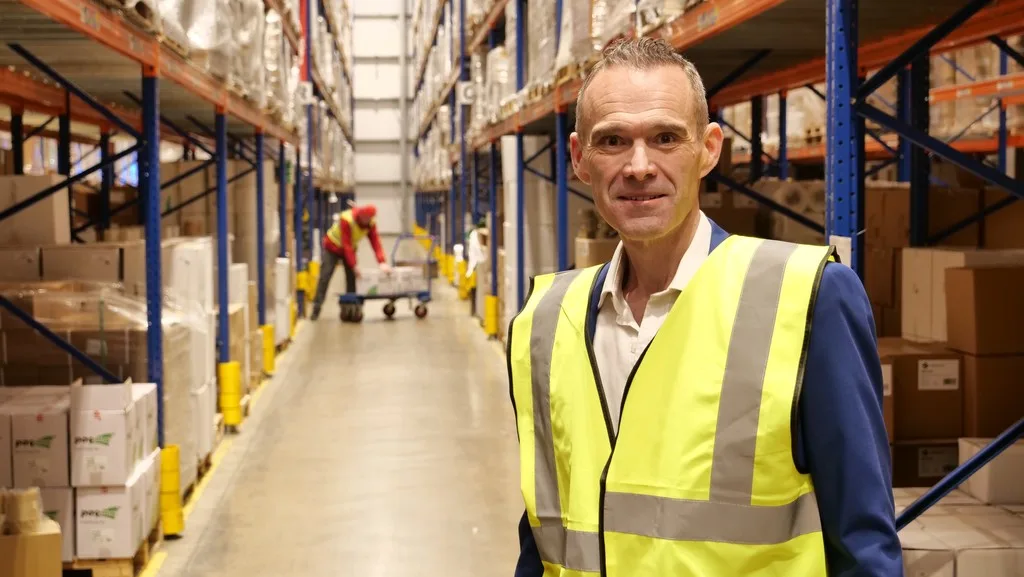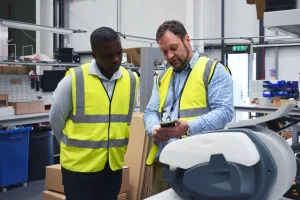Southgate Global explores the key benefits of supplier consolidation
Supplier fragmentation is fast becoming an increasing challenge for organisations of all sizes, from global corporations to single-site operators. Many are growing tired of wrestling with maintaining detailed records in the ERP on thousands of suppliers supplying similar goods in the same categories.

AS THE logistics landscape continues to adapt and drive the need for efficiency, there is no space for a highly fragmented supplier base that causes challenges such as slower production, different equipment failing to work together seamlessly, increased administration costs, varying quality and an inventory that is more difficult to manage.
In response, some forward-thinking organisations in manufacturing, 3PL, e-commerce and warehouse operations are actively moving away from sourcing from a broad spectrum of suppliers and instead, seeking a single-source solution.
A growing trend that Southgate Global, a leader in the supply of equipment, consumables and servicing in operational logistics and fulfilment, predicts to become more prevalent in coming years.
Dan Brasier, CEO at Southgate Global, explained: “Logistics challenges are intensifying and it’s leading to organisations reviewing all areas of their operations to ensure they’re optimising at each stage. Something we have witnessed first-hand at Southgate, as the benefits of single source suppliers are becoming more apparent in today’s complex market.”
One of the key benefits that are the driving force behind supplier consolidation is the value for money that it offers. Brasier added: “When working with a single source, it improves your buying power to negotiate bulk discounts and volume-based pricing agreements.
“Not only will these maximise the power of your spend and reduce costs but may also enable you to negotiate better payment terms.”
Realising these benefits, though, is particularly challenging when it comes to buying operational logistics and fulfilment products such as packing equipment, consumables, and materials handling equipment. The fragmented nature of the supply base and the low unit cost of many of the purchases mitigates against the interests of the buying organisation in relation to being easily able to capitalise on the benefits of a reduced supplier base.
“That’s why customers are turning to Southgate,” said Brasier. “When you can implement it, then supplier consolidation in this area can unlock real benefits in terms of saving up to seven-figure sums.”
The direct costs, however, are just one of the benefits. When streamlining the process, many indirect costs follow, Brasier noted.
He said: “One more obvious example of this is that fewer bigger deliveries mean lower delivery costs. But perhaps less obvious is the cost that can be saved by managing fewer suppliers as it simplifies your procurement process and further reduces the costs involved in maintaining those suppliers in your ERP.”
The Hackett Group estimated that it costs somewhere in the region of £550 to £1100 just to set up a supplier in your ERP. So evidently, as Brasier notes, the fewer times you have to do this the better, and in doing so, the ongoing costs of maintaining that supplier will also be reduced.
For organisations who are looking to speed up operations, increasing supplier consistency via consolidation will have a huge impact, Brasier explained.
“Having fewer suppliers to monitor, manage and communicate with means you have fewer different supplier quality control systems, resulting in more consistent quality standards, fewer KPIs to monitor and better overall product quality.”
In comparison, relying on multiple suppliers each supplying individual products or product categories can cause an increased risk within your supply chain. The National Association of Manufacturers reported in 2022 that 78.3 per cent of manufacturing leaders listed supply chain disruptions as a primary business challenge.
Therefore, by reducing your dependency on a large number of suppliers, you are reducing your risk of having your entire packing line come to a halt. Brasier continued: “With consolidation, you have better visibility on your supply chain, it’s easier to identify and anticipate any regional disruptions and implement proactive measures to ensure continuity because there are fewer suppliers to review.
“Working with fewer vendors also makes it easier to plan, track and direct your shipping operations which, in turn, can reduce the cost of managing those deliveries and related shipments.”
This also ties into the notion of trust and how there is only one place to turn for support if faced with unexpected challenges. Something Southgate prides itself on as a single-source supplier, working closely with its customers to understand their unique business needs and going the extra mile.
“Working with multiple suppliers, it can be hard to build a strong, long-lasting relationship which offers direct guidance and support with genuine interest at heart. With fewer suppliers, you have more time to work harder on building a solid relationship, which leads to better supplier collaboration, innovation, and responsiveness, as well as a better understanding of your unique business needs,” Brasier explained.
As more organisations seek to simplify their supply chain, supplier consolidation will become key. To help with the transition, Southgate is utilising its knowledge and expertise to provide advice and practical solutions to those facing supplier fragmentation issues in relation to their packing equipment, consumables, materials handling equipment and servicing needs.
To download Southgate’s latest white paper on supplier consolidation and to use its Supplier Evaluator Matrix, click here.















